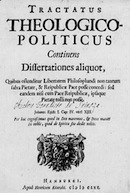
Source: Theologico-Political Treatise - Chapter IV - of the Divine Law
Spinoza's Chapter 4. – conclusion – scripture and reason agree (Page 8)

Spinoza concludes this chapter with some words of Paul's Epistle to the Romans, which he says: clearly show that everyone can by the light of nature clearly understand the goodness and the eternal divinity of (Deus sive Natura), and can thence know and deduce what they should seek for and what avoid.
Spinoza states that the meaning of some more (to me) obscure language of Paul is in agreement with the words of Solomon and he finishes the chapter by saying that Scripture literally approves of the light of natural reason and the natural Divine law
Comment:
To me this conclusion is not at all straight forward. The language of Paul that Spinoza quotes is difficult to my modern ear and its meanings are not at all clear. Perhaps to Spinoza and others familiar with medieval scholastic discourse meanings can be inferred but I cannot find logical reasoning here. I wonder if these are really Spinoza's views. (see the next page)